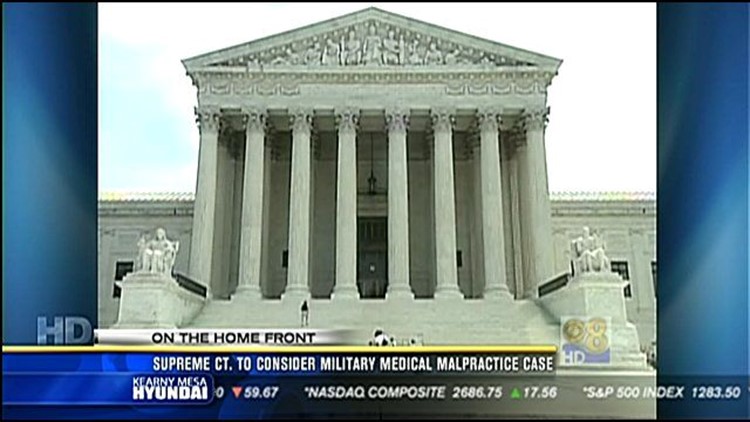SAN DIEGO/SACRAMENTO (CBS8) - The U.S. Supreme Court will consider whether to hear a case on a controversial legal doctrine that forbids active-duty personnel from suing military doctors for medical malpractice.
"A member of the service doesn't have the same rights to sue for medical malpractice as you or I would have," explains Joy Delman, a Professor at Thomas Jefferson School of Law.
Sergeant Carmelo Rodriguez and his family discovered that first hand, when the 29-year-old's skin cancer was discovered, but never reported to him. Rodriguez later died from the cancer and the families attempt to turnover the very doctrine that defines the fact military members can't sue the federal government fizzled out in Congress.
"The theory behind it is that there are alternative mechanisms in place for compensation that military members have," said Delman.
Medical care and other service's through the Veteran's Administration is the benefit referred to in the event a military member is injured "incident to service." But many families of those affected by medical errors that resulted in the permanent damage or death of their loved ones don't think those benefits are enough.
Now the United States Supreme Court is taking closer look. Professor Delman says in the past the court has declined to hear any challenges to the Feres Doctrine, but a new case presented to them is being considered for a possible hearing.
The challenge is being brought forward by the family of Sacramento based Airman Dean Witt, who was diagnosed with acute appendicitis. He survived the surgery only to have breathing complications, where a nurse stuck a breathing tube down his esophagus instead of his trachea. Witt's brain starved for oxygen, leaving him in a persistent vegetative state.
These situations bring up the question: should the Feres Doctrine not apply to military medical malpractice?
"Experts have argued that the rationale for it applying to Commanding Officers is very different than a medical situation and the two can be separated out," said Delman.
But the Office of Congressional Budget reports that, if allowed, an estimated 750 malpractice lawsuits would be filed annually, costing the federal government $2.7 billion over ten years.
Military commanders have argued that lawsuits would only distract service members up and down the chain of command and affect the mission.
A decision on whether the Supreme Court Justices will hear the case could come as early as Monday.



